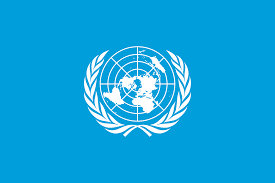The Context: Israel’s Ban on the UN Chief
Tensions between Israel and the United Nations escalated when Israel declared António Guterres a “persona non grata,” effectively banning him from entering the country. This drastic measure followed Guterres’ comments, which Israel perceived as being biased against them, particularly after missile attacks by Iran and the October 7, 2023, assault on Israel by terrorist groups. The Secretary-General’s refusal to label the October 7 attack as a “terrorist act” further angered Israel, leading to the ban.
In response, 104 member nations of the UN signed a letter condemning Israel’s decision, calling it an insult to the respect and authority of the United Nations. India, however, declined to join as the 105th signatory, which led to considerable speculation about the reasons behind its decision.
India’s Decision: A Balancing Act?
India’s refusal to sign the letter has drawn criticism from some opposition leaders. Former Indian Home Minister P. Chidambaram and former Minister of External Affairs Shashi Tharoor voiced their disapproval, calling the decision “inexplicable” and “surprising.” Tharoor, who has long represented India at the UN, argued that India’s traditional support for multilateralism and the United Nations should have compelled it to sign the letter.
However, India’s stance may be rooted in its consistent condemnation of the October 7, 2023, attacks on Israel. Prime Minister Narendra Modi expressed deep shock and condemned the attack as an act of terrorism, stating, “We stand in solidarity with Israel at this difficult hour.” Given India’s clear denunciation of the attack as terrorism, signing the letter against Israel would have created inconsistency in its position. By refraining from doing so, India maintains diplomatic balance without contradicting its earlier stance.
Moreover, while India chose not to join the letter, it has not hesitated to criticize Israel when necessary. For instance, India condemned Israel’s recent military actions that endangered UN peacekeepers stationed along the Israel-Lebanon border. Indian soldiers, among others, are deployed as part of the UN peacekeeping force, and ensuring their safety is of utmost importance to India.
Opposition Criticism vs. Government Strategy
India’s opposition parties have expressed strong discontent over this decision, with Chidambaram and Tharoor highlighting that the move undermines India’s moral authority and longstanding commitment to global governance. According to them, India should have stood with the international community to condemn Israel’s actions against the UN Chief.
On the other hand, the government’s supporters argue that this is a pragmatic diplomatic move, balancing India’s growing strategic partnership with Israel and its global responsibilities. India’s decision reflects its nuanced approach to foreign policy, which carefully navigates the complex dynamics of international relations.
What Lies Ahead?
India’s refusal to sign the letter could be seen as part of its larger diplomatic balancing act, ensuring it does not compromise its relationship with key partners like Israel while still participating in global governance. As India’s global stature continues to rise, such decisions showcase its independent and calculated approach to international diplomacy.
What do you think of India’s decision? Was it the right move to abstain from signing the letter, or should India have joined the 104 nations in support of the UN Secretary-General? Share your thoughts in the comments section below!

